He says that God is constantly calling upon his people to reform and renew the Church institution so as to be God-centered rather than turning them into human centered institutions.
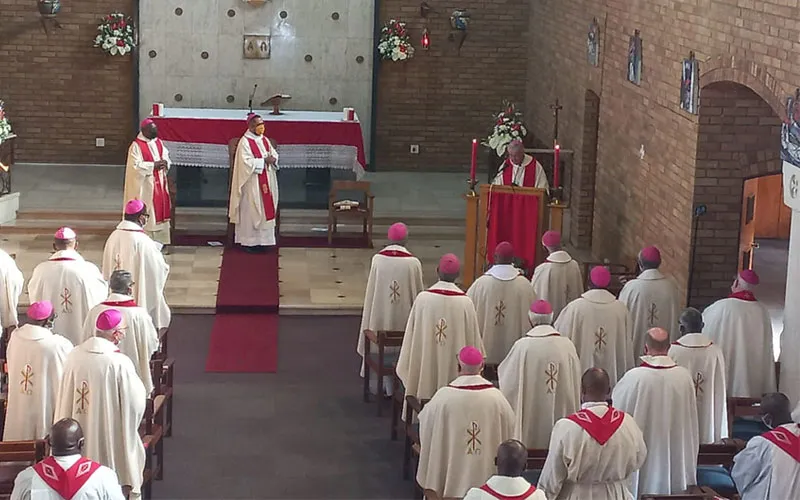 Credit: Sheila Pires
Credit: Sheila Pires
“We must always remind ourselves that the real Temple, the actual dwelling place of God, is his people, is each one of us. ‘You are the temple of the Spirit,’ says St. Paul,” Archbishop Wells says, and adds that the act of the Church moving forward, walking together, is Synodal, but it is always the Spirit who is the great protagonist of the Church.
He challenges the people of God to work towards ensuring that the local Church becomes even more “temples” pleasing to God.
“We must concentrate on what we need to do to ensure that our Parishes, our Church communities as a whole, more clearly point to God, so that people will be drawn to Him and come to discover His love, mercy, and solicitude for our salvation,” the Nuncio says in his statement used to address SACBC members January 19.
(Story continues below)
He explaines, “The local Church's mission is to carry out pastoral work continuing in a concrete way Jesus Christ's work on earth. As members of the local Church, each of us needs a good shepherd to direct or guide our souls since no one can map out their course without exceptional help from God.”
Speaking on the role of the local Church, Archbishop Wells says that the mission of the local church is miscellaneous. He proceeds to list the mission as training, sending and supporting missionaries all over the world in the mission of Christ.
He further urges the people of God to share the word of God and also help those who are in need, saying, “Live as examples to all; be united in moving forward together; and be aware of their differences, which is an integral part of the Synodal way.”
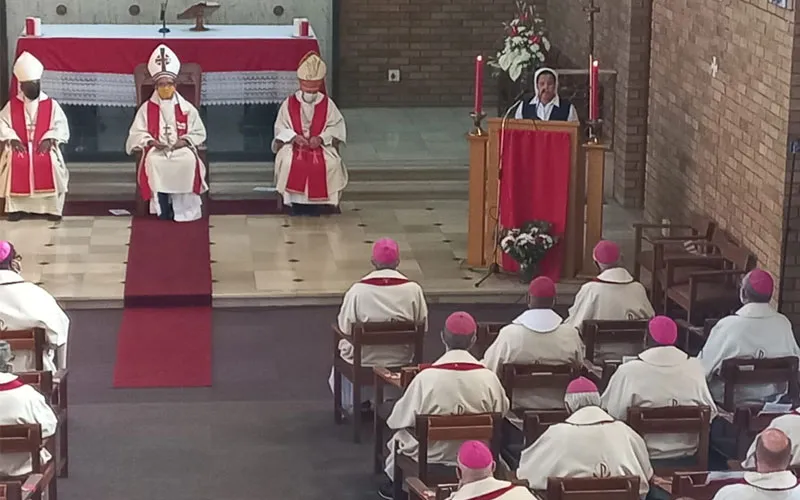 Credit: Sheila Pires
Credit: Sheila Pires
The Catholic Archbishop who has represented the Holy Father in the five Southern African countries since 2016 says that the outcome of the Synod will not only depend on the preparation of the participants but also their good will towards the whole process.
“An adequate spiritual disposition is needed on the part of all. In practical terms, this preparation means the fruit of study, of faith experience, of one's own life and that of others,” he says in his statement used to address Catholic Bishops in Botswana, Eswatini, and South Africa on January 19.
He adds, “This preparation will also refer to the personal conscience of each participant in the synod meeting: to be responsible for the mission entrusted, to speak, and not to take a passive attitude.”
Archbishop Wells urges members of the Clergy to play an essential role in both their teaching functions and spiritual accompaniments.
“If the Synod members are well versed in the topics and possess wisdom, they will enrich the vision of all and contribute to practical and workable solutions to the many challenges we together face in an increasingly connected and global reality,” he says.
He explains, “Suppose, however, the Clergy and laity are poorly prepared in this sense of faith, there is the likelihood that the presbyteral, pastoral, and parish councils will contribute very little in any conciliar reform gathering.”
The American Archbishop makes reference to Pope Francis' solution to the challenge of culture as a major hindrance to creativity and calls for continued connectedness of “intra-Diocesan Synodal bodies.”
“In order to try to solve this problem of cultural blocks to initiative and creativity, in a practical way, the Pope suggests that the intra-diocesan Synodal bodies remain connected with the ‘basics’ and start from the people, from the daily problems,” he says.
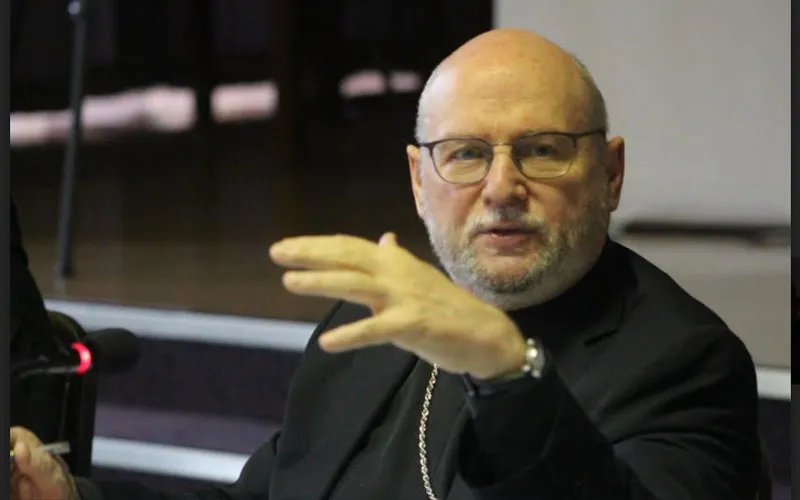 Credit: SACBC
Credit: SACBC
The Apostolic Nuncio adds in reference to Pope Francis’ counsel, “It is a concrete way of listening to others, at the intra-ecclesial level, which he considers fundamental for the Church to begin to take on an authentic Synodal form.”
In his conclusion, Archbishop Wells says that Synodality should not in any way be looked at as the “mechanical law of the majority or the unanimity imposed by the leader but a dialogue that strives to bring everyone together towards unity.”
The seven-day SACBC Plenary Assembly that is taking place within the context of the Week of Prayer for Christian Unity is expected to conclude on January 25.
It is the first to be held physically since January 2020. Previous meetings were held virtually amid COVID-19 restrictions.
In his homily during the opening Eucharistic Celebration for the Plenary Assembly January 18, Bishop João Noé Rodrigues of South Africa’s Tzaneen Diocese described the gathering of Catholic Bishops in the three-nation Conference as “a moment of grace.”
Bishop Rodrigues said that communion among Church leaders is “a fruit of the Holy Spirit” in their respective lives.
Silas Mwale Isenjia is a Kenyan journalist with a great zeal and interest for Catholic Church related communication. He holds a Bachelor’s Degree in Linguistics, Media and Communication from Moi University in Kenya. Silas has vast experience in the Media production industry. He currently works as a Journalist for ACI Africa.



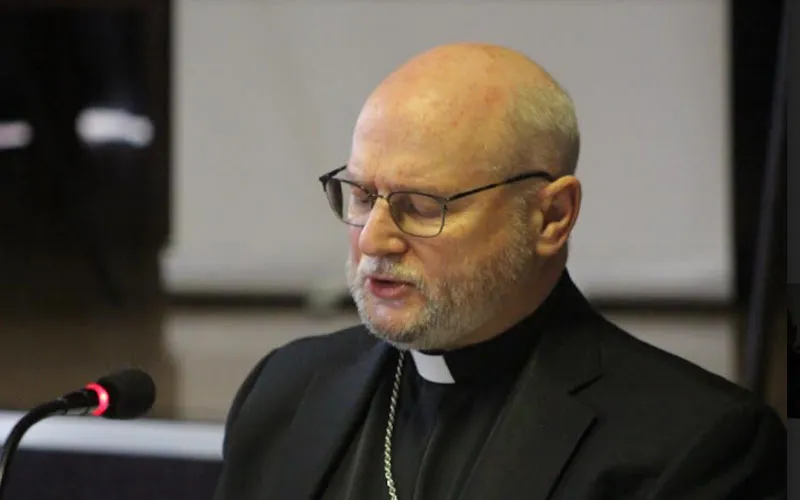
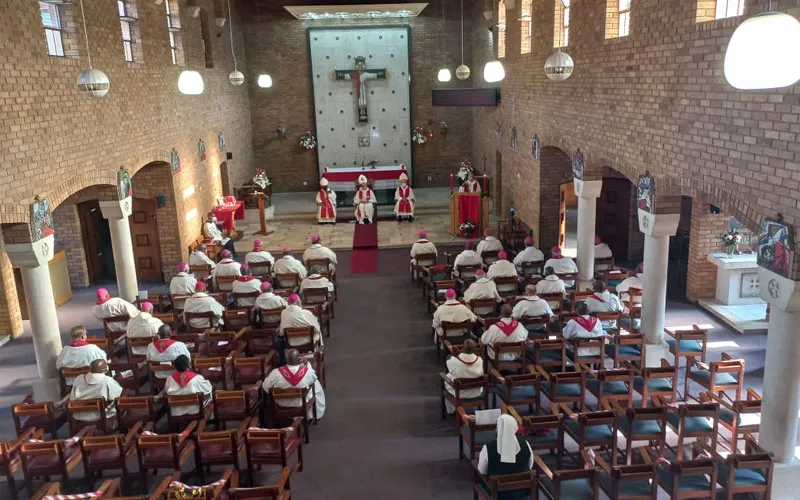 Credit: Sheila Pires
Credit: Sheila Pires
 Credit: Sheila Pires
Credit: Sheila Pires Credit: Sheila Pires
Credit: Sheila Pires Credit: SACBC
Credit: SACBC


